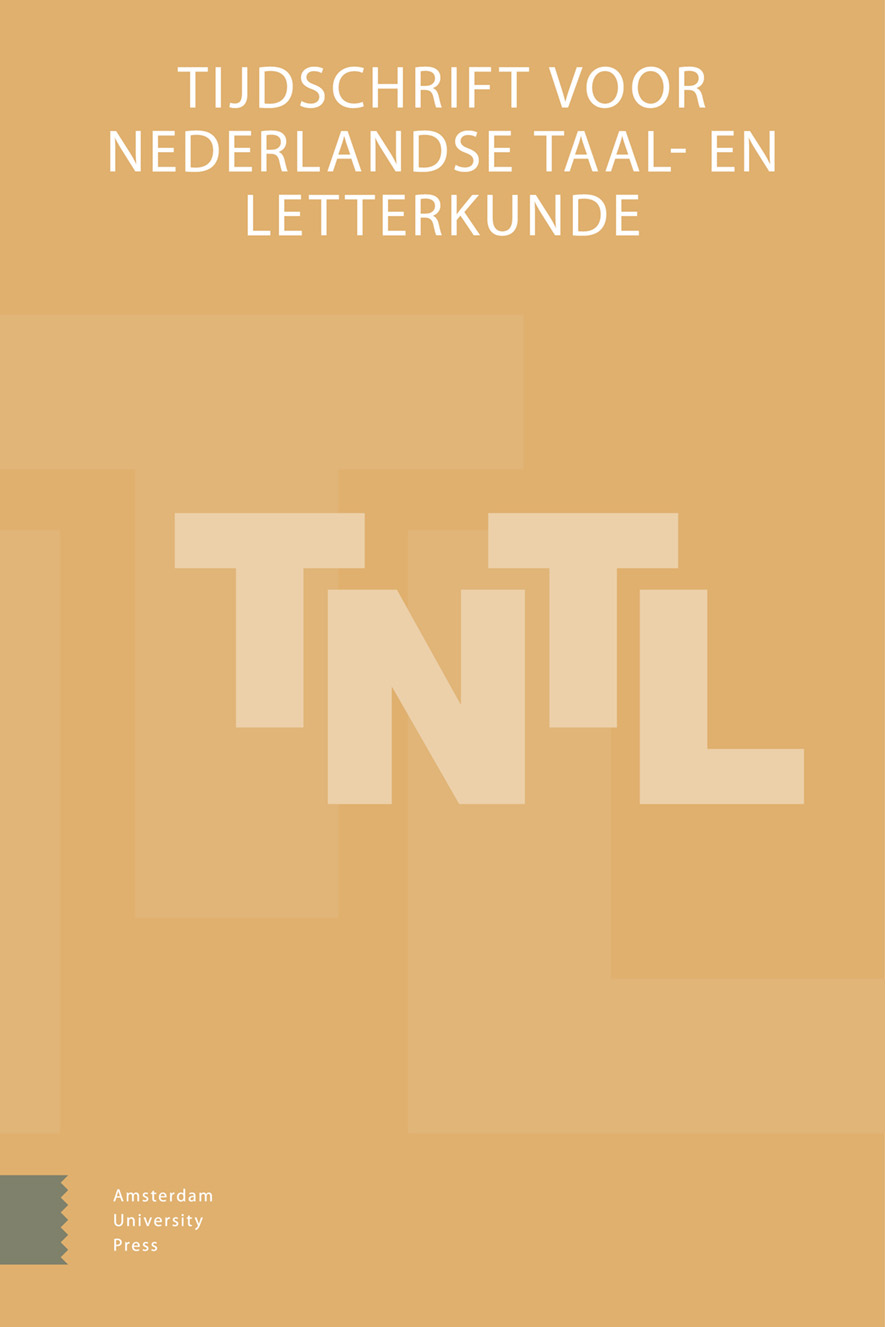- Home
- A-Z Publications
- Tijdschrift voor Nederlandse Taal- en Letterkunde
- Previous Issues
- Volume 139, Issue 4, 2023
Tijdschrift voor Nederlandse Taal- en Letterkunde - Volume 139, Issue 4, 2023
Volume 139, Issue 4, 2023
- Artikelen
-
-
-
Vroege taalcontacten tussen het Nederlands en het Russisch
More LessAuthors: Jos Schaeken & Michiel de VaanAbstractIn this contribution we conduct linguistic and historical research on a Dutch-Russian glossary from the early seventeenth century discovered not so long ago and published in Russian in 2017. The concise word list is the oldest surviving testimony to date of language contact between Dutch and Russians. Based on the provenance of the manuscript in which the word list is located and on the semantic fields found in it, we argue that it should be associated with the northern Russian port city of Arkhangel on the White Sea. Here the Dutch traded with the Russians as early as the sixteenth century. The Dutch part of the glossary shows that a North Holland dialect north of the IJ and especially West Frisian qualify as the informant’s area of origin. This assumption is consistent with historical research on the origins of Dutch traders at Arkhangel from the late sixteenth century onward.
-
-
-
-
Religieus of geseculariseerd?
More LessAuthor: Alexander Van de SijpeAbstractThis article introduces postsecularism as a reading framework for Christian references within Dutch novels. Postsecular literary studies operate at a meta-level, as they question what is meant by religion and secularity, and how these concepts interact with one another within literary works. After a discussion of postsecularism and its position within Dutch literary studies, I illustrate this methodology using two novels in which the crucifixion plays an important role: Van Brederode’s Ave verum corpus (1994) and Palmen’s Jij zegt het (2015). These postsecular interpretations go beyond a purely intertextual reading and identify elements that steer readers towards a religious or secularised interpretation of the crucifixion, or in a more ambiguous direction. Interpretations that pay attention to these steering elements become less dependent on the religious or secularized point of view of the interpreter. In this way, a better understanding of the complex manifestations of Christianity in Dutch literature emerges.
-
Most Read This Month


